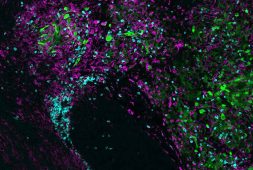
Energy drinks often emphasize the potential benefits of taurine, a compound that has shown promise in promoting anti-aging effects in studies involving mice and monkeys. However, its impact on humans remains uncertain.
Taurine, a naturally occurring nutrient found in fish and meat, and frequently included as a supplement in popular energy drinks, appears to have a positive impact on promoting healthy aging in animal studies, particularly in mice and monkeys.
A recent study published in Science reveals that low levels of taurine are linked to accelerated aging in various animal species, highlighting the potential benefits of taurine supplements in extending the lifespan and improving the overall health of certain animals.
While these findings are promising and warrant further investigation, it will likely be several years before conclusive results from human trials are available, according to Vijay Yadav, PhD, the senior study author and an assistant professor of genetics and development at the Columbia University Vagelos College of Physicians and Surgeons in New York City.
“Until then we do not recommend supplementation,” Dr. Yadav advised.
Taurine Supplements Extended the Middle-Aged Mice’s Lifespan by 10 to 12 Percent
To investigate the connection between taurine and the aging process, researchers initiated their study by assessing taurine levels in the blood of mice, monkeys, and humans. Their findings revealed a consistent decline in taurine levels as individuals and animals aged. Remarkably, 60-year-old individuals exhibited approximately one-third the taurine levels found in 5-year-old children.
Subsequently, scientists conducted experiments involving daily taurine supplementation in middle-aged mice. The results demonstrated that taurine intake increased the average lifespan by 12% for female mice and 10% for males. In practical terms, this extension in lifespan equated to roughly an additional three to four months of life for the mice, which would be approximately equivalent to seven or eight years of life for humans, based on the study’s findings.
Moreover, in the case of older mice, a year of consistent taurine supplementation appeared to offer a range of health benefits. In females, it seemed to curtail age-related weight gain, enhance bone health, augment muscle strength and endurance, bolster immune system function, and reduce behaviors indicative of depression and anxiety in rodents.
Middle-aged monkeys also experienced similar advantages when subjected to daily taurine supplementation over a six-month period. These benefits included reduced weight gain, stronger bones, improved immune system health, and lower blood sugar levels, as reported in the study.
These outcomes suggest the potential for daily taurine supplements to potentially mitigate or even reverse certain age-related health issues in humans, according to Charles Mobbs, PhD, a professor specializing in neuroscience, endocrinology, and geriatrics at the Icahn School of Medicine at Mount Sinai in New York City.
“However, as always, we cannot recommend that people immediately begin consuming such supplements until careful clinical trials have established the safety and efficacy of supplementation,” Dr. Mobbs said. It must be noted that he wasn’t part of the study.
More Research on the Effect on Humans Still a Must
Additional research is required to gain a deeper understanding of taurine’s potential in slowing down the natural aging processes, as emphasized by Dr. Toren Finkel, MD, PhD, who serves as the Director of the Aging Institute at the University of Pittsburgh Medical Center in Pennsylvania.
“It’s very hard to extrapolate from mice to humans when it comes to aging, as our metabolism, the diseases we die from, and our lifespans are so different,” said Dr. Finkel. He also wasn’t part of the new study made.
Finkel observed that, considering the taurine dosage administered to mice in the research, individuals would need to consume approximately 6,000 milligrams of taurine on a daily basis in order to attain a proportional intake of this essential nutrient, adjusted for their respective body sizes. This insight underscores the substantial disparity between the taurine requirements of mice and humans, highlighting the importance of tailoring supplementation levels to suit the physiological needs of each species.
“That’s at the upper limit of what is thought to be safe, but the long-term consequences of such high doses are not clear,” Finkel said. “Taurine is high in foods like fish, so absent a controlled randomized trial, I would argue that if you want to follow the tenets of this study the safest thing to do at this time is to eat more fish.”



